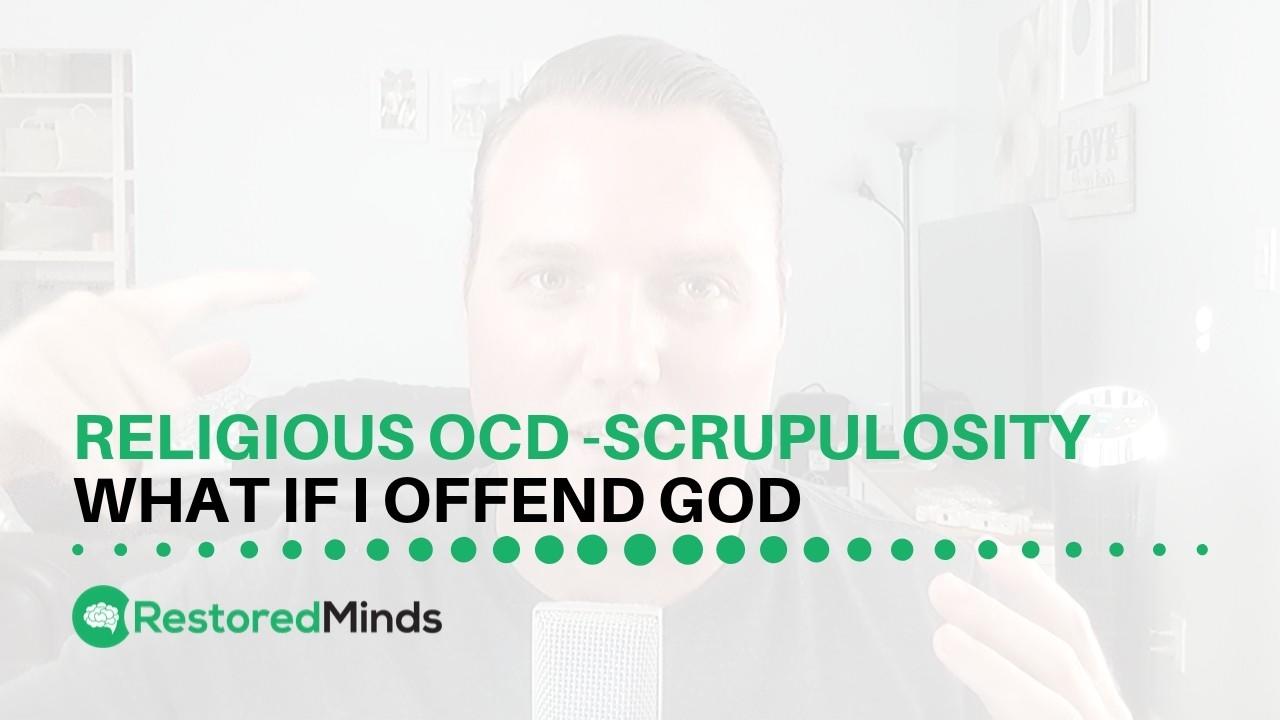Religious OCD -Scrupulosity - What if I offend God
Oct 11, 2019
Title: Understanding Religious OCD: Overcoming the Fear of Offending God
Welcome to Restored Minds! In today's blog post, we will delve into the intricate subject of Religious OCD, specifically focusing on the fear of offending God. This topic is part of our ongoing series on intrusive thoughts, with a special emphasis on how they manifest within the context of Obsessive-Compulsive Disorder (OCD). By exploring this issue, we aim to provide clarity and offer practical steps for those struggling with these unsettling thoughts.
What is Religious OCD?
Religious OCD, also known as Scrupulosity, involves obsessive fears related to religious or moral correctness. Individuals experiencing this form of OCD often grapple with intrusive thoughts about whether their actions or thoughts might offend God or violate their religious beliefs. These thoughts, despite being irrational, can become overwhelming and disruptive.
Recognizing the Signs
At the heart of religious OCD is the intrusive thought: "What if I offend God?" These thoughts might revolve around actions as innocuous as hugging someone, which could lead a person to worry whether they've committed an act like adultery in the eyes of God. The key to recognizing religious OCD lies in identifying these persistent, irrational doubts and the emotional turmoil they generate.
Matt, our presenter at Restored Minds, emphasizes the critical importance of distinguishing whether these issues stem from a genuine religious concern or an anxiety-driven OCD problem. This distinction is vital for effective treatment and mental well-being.
The OCD Loop
Understanding the OCD loop is essential for addressing religious OCD effectively. The loop consists of:
-
Intrusive Thought:
A thought or doubt arises, such as
"Did I offend God?"
-
Emotional Spike:
The intrusive thought generates anxiety or doubt.
-
Compulsive Behavior:
To alleviate this anxiety, a person engages in compulsive behaviors like praying repeatedly.
-
Temporary Relief:
The compulsion temporarily reduces anxiety, but the intrusive thought eventually returns, perpetuating the cycle.
Common Compulsions in Religious OCD
Among the compulsions related to religious OCD, some of the most frequent include:
-
Excessive Praying:
Praying repeatedly for reassurance that one hasn't offended God.
-
Seeking Reassurance:
Asking religious leaders or loved ones repeatedly whether they have committed a sin or offended God.
-
Avoidance:
Avoiding certain actions or situations that might trigger intrusive thoughts.
These compulsions, while intended to relieve anxiety, actually reinforce the OCD loop.
Effective Treatment Strategies
To break free from the grip of religious OCD, it's crucial to address both the obsessions and the compulsions. Here are some key steps in the treatment process:
-
Identify the Obsession:
Acknowledge the intrusive thought, such as
"What if I offended God?"
-
Separate the Issue:
Determine whether this is genuinely a religious issue or an OCD problem. If the fear is persistent and irrational, it is likely driven by OCD.
-
Remove Compulsions:
Gradually reduce and eliminate compulsive behaviors. This might involve resisting the urge to seek reassurance or pray excessively.
-
Expose and Habituate:
Practice exposure to anxiety-provoking thoughts or situations without engaging in compulsions. This helps reduce the emotional intensity over time.
An example given by Matt involves a person who avoided wearing a dress out of fear that it might offend God. As part of treatment, she would wear the dress in a controlled setting to confront and habituate the anxiety.
Conclusion
Religious OCD can blur the lines between genuine spiritual concerns and anxiety-driven obsessions. It's important to objectively assess the nature of the thoughts and treat them as an OCD issue if they are repetitive and irrational.
We hope this article sheds light on the complexities of religious OCD and provides practical insights for those seeking help. Remember, understanding and addressing the OCD loop is key to breaking free from the cycle of fear and compulsion.


